SPOTLIGHT: WORLD AIDS DAY
From the frontlines: Twenty years of fighting HIV in Khayelitsha
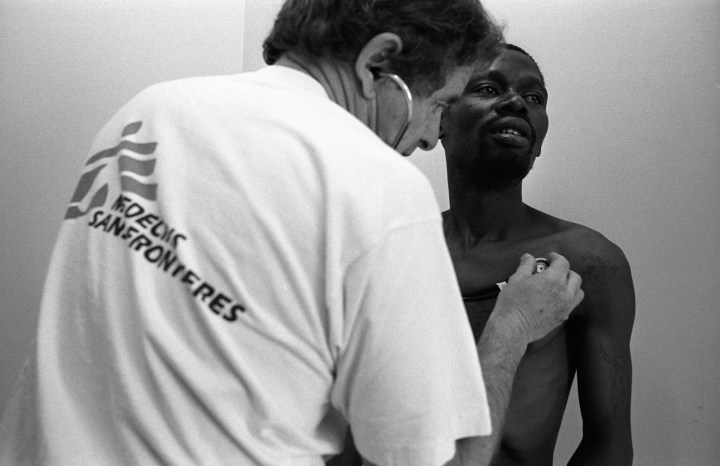
Two decades since Doctors without Borders (MSF) started its HIV programme in Khayelitsha, the organisation will start wrapping up and by the end of 2021, cease its operations.
Back when Doctors without Borders (MSF) started providing HIV services in Khayelitsha 20 years ago with the support of the Western Cape Department of Health, the move was a light at the end of a tunnel for many people living with HIV.
At the time, antiretroviral treatment was not provided in the public healthcare system. Even after the Constitutional Court ordered the government to make treatment available to pregnant mothers in the TAC (Treatment Action Campaign) case in 2002, it would only be from around 2008 that the government’s HIV treatment programme really took off across South Africa.
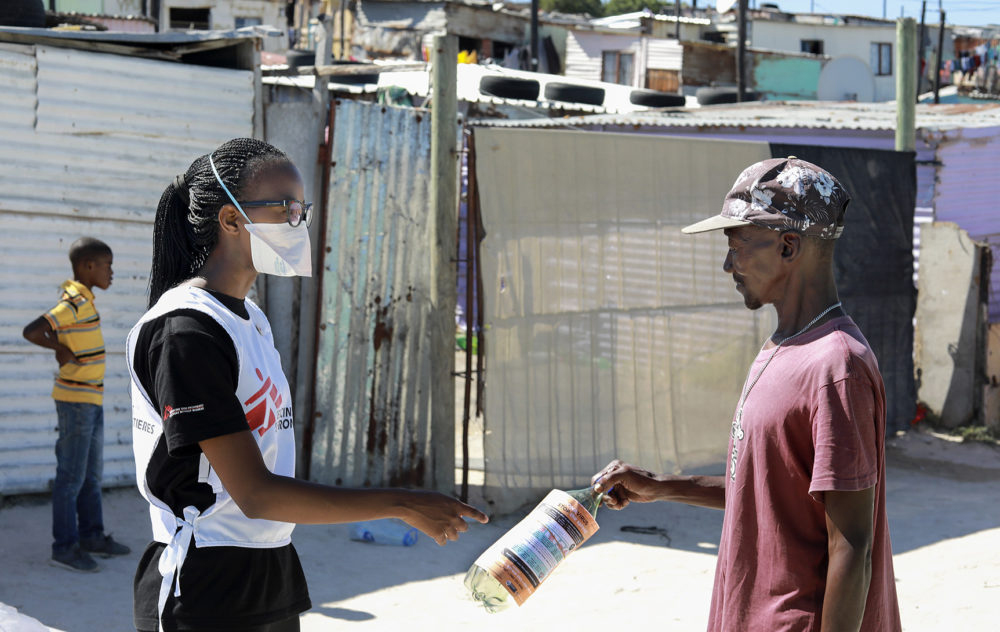
Doctors Without Borders (MSF) Southern Africa in collaboration with the city health department educates Khayelitsha, Cape Town residents on 2 April 2020 about physical distancing and washing hands to combat Covid-19. (Photo: Gallo Images / Nardus Engelbrecht)
“The majority of people [coming to our clinic] could not walk any more. They were brought literally in wheelbarrows, or carried on the backs of their relatives. People were dying in the waiting room,” Dr Eric Goemaere, is quoted remembering on the MSF website.
“While we were consulting behind the door, regularly we could hear people screaming, and this was a sign there was another death. And honestly, there was no single day without a death in the waiting room.”
Now, 20 years later, more than five million people are receiving antiretroviral treatment in South Africa. The annual number of AIDS deaths in the country has fallen from an estimated peak of 299,000 in 2006 to around 74,000 in 2019.
MSF’s field communications manager, Sean Christie, tells Spotlight the project is now entering a “handover phase which involves a lengthy period of more than a year when activities are handed over to MSF’s partners in a phased manner”.
“The Western Cape has one of the most robust health systems on the continent. MSF addresses healthcare gaps, working in many countries where there are no health services whatsoever, and as the organisation is constantly reviewing priorities, it was [decided] that the Khayelitsha project has done what it aimed to do,” says Christie.
Knocking at death’s door
In the Town Two area in the heart of Khayelitsha, 46-year-old Fanelwa Gwashu, herself “an MSF foot soldier”, recalls the early days. Gwashu remembers once “knocking at death’s door”. She was diagnosed with HIV in 2004 and was also suffering from meningitis (still one of the top killers of people with HIV). Gwashu was immediately put on treatment, but she did not see herself living for much longer.
“I was bedridden and so weak at the time that I depended on my family to feed me my medication,” she recalls.
After losing two of her siblings to HIV she vowed to fight hard and beat the virus. And what kept her going in her fight was the fact that her family also gave her the support she needed and never discriminated against her, she says.
“I remember my parents told me that they would never allow another HIV death in my family and that I had their whole, undivided support. They were my pillar of strength and are the ones who made me wake up from that death bed.”
In 2005, Gwashu was on treatment and regained her strength. She decided to join the TAC. As a TAC activist, Gwashu said the fight was against stigma, as many people in Khayelitsha were scared of disclosing their status because they feared being victimised.
“In those days there were people who were stoned to death after disclosing their status. It was a taboo topic and some families would even hide their loved ones who were positive,” she says.
In 2009, Gwashu was recruited by MSF and started doing door-to-door visits where she visited and counselled people living with and affected by HIV, a job she does to this day. Gwashu says working on something she is passionate about and getting paid for it, was a confidence-booster.
“For me, I really didn’t see it as work. It served as a healing process because I was able to speak openly about [my] condition. I was happy that more people in Khayelitsha were able to go and get tested because they could see in me that one can live a happy and a healthier life with HIV.”
But there were challenges.
Gwashu says the three Ubuntu clinics based in Khayelitsha and run by MSF were flooded with people seeking TB and HIV services.
“The period between 2005 and 2006 while working as a TAC activist was a challenging one because many people were [daily] succumbing to both TB and HIV. Most of them would only come to the clinic when they were critically ill and when their CD4 count was very low. There wasn’t much that could be done for them,” she says. A low CD4 cell count indicates a compromised immune system.
Among some painful moments in her HIV journey were seeing some of her “comrades” giving up the fight along the way and deciding to stop treatment.
“I’ve lost count of fellow activists who just suddenly decided to give up the fight and said to me, ‘Fanelwa I’m tired, I can’t take any more of this. I just need to rest forever’,” Gwashu says.
Eastern Cape to Khayelitsha
Diagnosed with HIV in March 1997, Thobani Ngapayi says he saw his world crumbling in front of his eyes. When he received the news about his status, he was in the Eastern Cape. He says the fact that health services were poor and there was little knowledge and awareness about the virus made things worse.
“The only thing we knew was that if you are suffering from HIV, you are one step closer to the grave,” says Ngapayi. “People also kept a distance from you because there was this belief that even being in [close proximity] of someone with the virus was dangerous.”
In 1998, a Cape Town-based friend encouraged him to come and consult doctors in the Western Cape.
“After arriving in Cape Town in 1999, I joined TAC after meeting Mandla Majola [a prominent TAC leader] at Conradie Hospital where I was admitted. Thereafter I was lucky to be the first patient to join MSF. At that time there was no [ARV] medication and then in 2001, I was one of the first patients who started ARV medication under MSF at [a] weight of 29kg.
“It was not easy those days because we had the stigma and discrimination in our communities. But I felt fortunate because when I joined MSF there were support groups. Through them I manage to cope with the stigma and discrimination that I faced daily in my community,” he recalls.
Power of medicine and science
MSF has been working in South Africa since 1999 with its primary aim to develop innovative interventions in HIV and drug-resistant TB care and also to influence local, national, regional and international policies on treatment for these diseases.
Goemaere was one of the first doctors who worked with HIV patients 20 years ago when MSF launched in Khayelitsha. He recalls how there were people with no access to treatment at the time. Looking back, Goemaere says today he is happy that more than five million people living with HIV have access to antiretroviral treatment and access to care.
“And that is because of the power of a movement, the power of medicine, the power of science and the power of evidence,” he says.
But Goemaere is quick to caution that amid all the focus on Covid-19, people need to be reminded that HIV has not “suddenly gone away”.
About 200,000 people in South Africa are estimated to have become HIV-positive in 2019. Around 7.6 million, or 13% of the population, are living with HIV.
Birthplace of a movement
Nompumelelo Mantangana started working as a nurse at MSF at the HIV/TB Ubuntu clinic in Khayelitsha in 2005. She recalls how they had to work from a container in Site B back then and the daily long queues of TB and HIV patients.
“People were dying in numbers from the virus. Many were bussed from the Eastern Cape with low CD4 counts. The highest CD4 count in most patients was 10. We knew that something needed to be done and the starting point was integration of TB and HIV and I am glad that we eventually managed to achieve that and even saw it being rolled out countrywide. The fact that it started at our Ubuntu clinic here in Khayelitsha is something that still brings a smile to my face. We will always go down in history as the birthplace of a movement for access to treatment in South Africa,” says Mantangana.
She recalls how stressful it was back then, having to put up with “a president who was in constant denial of the virus and a health minister who had all these weird theories and solutions for prevention”.
“It was the most unfortunate moment in the fight against HIV. To say we were angry as people in the health profession who dealt directly with HIV cases on the ground would be an understatement. We were appalled every time the president, and the minister uttered words concerning HIV.
“The then minister’s HIV policies were quite disastrous to say the least. Imagine a health minister who confidently stands on the podium and preaches a bizarre belief that garlic, lemons, beetroot and olive oil are capable of treating HIV/AIDS. This, while people out there are in desperate need of real treatment,” says Mantangana.
Fight for rights
Meanwhile, Phumeza Runeyi started her fight for the rights of people living with HIV when her friend and HIV activist Lorna Mlofane was brutally raped and murdered in Town Two in Khayelitsha.
Runeyi says her friend’s tragic death made her want to stand up and fight for the rights of people living with HIV.
“Although I am HIV-negative, I became more interested to find out what the government is doing to fight this virus. That was when I joined TAC and became actively involved in campaigns around Khayelitsha that were aimed at raising awareness about the virus. Sadly, there was a lot of stigma at that time and as a result most people were scared to come out. But we drove the campaigns and made people see that this virus was no death sentence,” she says.
As a health promotions officer at MSF, Runeyi works with young people and adolescents, groups that she believes are too often ignored in HIV programmes.
“There is still this wrong perception that HIV can only be contracted by adults. We need to start focusing more on the young ones because, as much as we don’t want to accept it, they start being sexually active at very early ages,” she says.
Over the years, Runeyi says a number of young people in Khayelitsha have committed suicide after finding out about their HIV status. She believes suicide incidents could have been avoided had parents stopped being in denial and spoken openly about HIV to their children.
“In our communities you still find situations where young boys hide condoms when they are at home because they know that they are going to get a hiding from parents. Some parents don’t appreciate the fact that the youngsters are at least practising safe sex. So, I guess we still have a long way in addressing some of these issues,” she says.
Reflecting on the impact of the Covid-19 pandemic, Runeyi says everyone agrees that the pandemic has shifted the focus from other diseases such as HIV/AIDS, diabetes and cancer.
“There is a feeling now among young males that they can’t mask double. They often joke that having to wear a mask all the time is a pressure on its own. So between a mask and a condom, one of them must fall. Hence, we need to strengthen our campaigns in these Covid-19 times to make everyone understand that wearing a mask is as important as putting on a condom. Corona must be getting all the attention now, but other viruses such as HIV also kill,”says Runeyi.
What does the future hold?
Shaking her head, Mantangana says it pains her that MSF will be closing its operations in Khayelitsha in 2022.
“I think it will be a sad day when that day comes. But, sadly, we have been made aware of the decision and have accepted it. But we will continue the fight against HIV/AIDS.”
Gwashu, meanwhile, says she will use the knowledge she has gained working for MSF to empower her Khayelitsha community and ensure that the struggle against the virus continues.
“If there’s one thing that MSF has given us, it is a voice. A voice to speak out and say HIV is beatable. I am just hoping that the government will try and treat all these diseases at the same time. Yes, we are in the middle of a Covid-19 pandemic but the fight against HIV must also continue. I, for one, will keep fighting until the war against HIV is won,” she says. DM/MC
NOTE: The Treatment Action Campaign (TAC) is mentioned in this article. Spotlight is published by SECTION27 and the TAC, but is editorially independent, an independence that the editors guard jealously. Spotlight is a member of the South African Press Council.
This article was produced by Spotlight – health journalism in the public interest. Sign up for our newsletter.






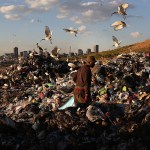

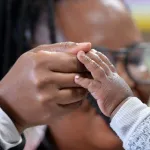

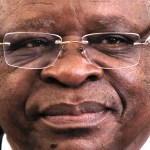







 Become an Insider
Become an Insider
Comments - Please login in order to comment.